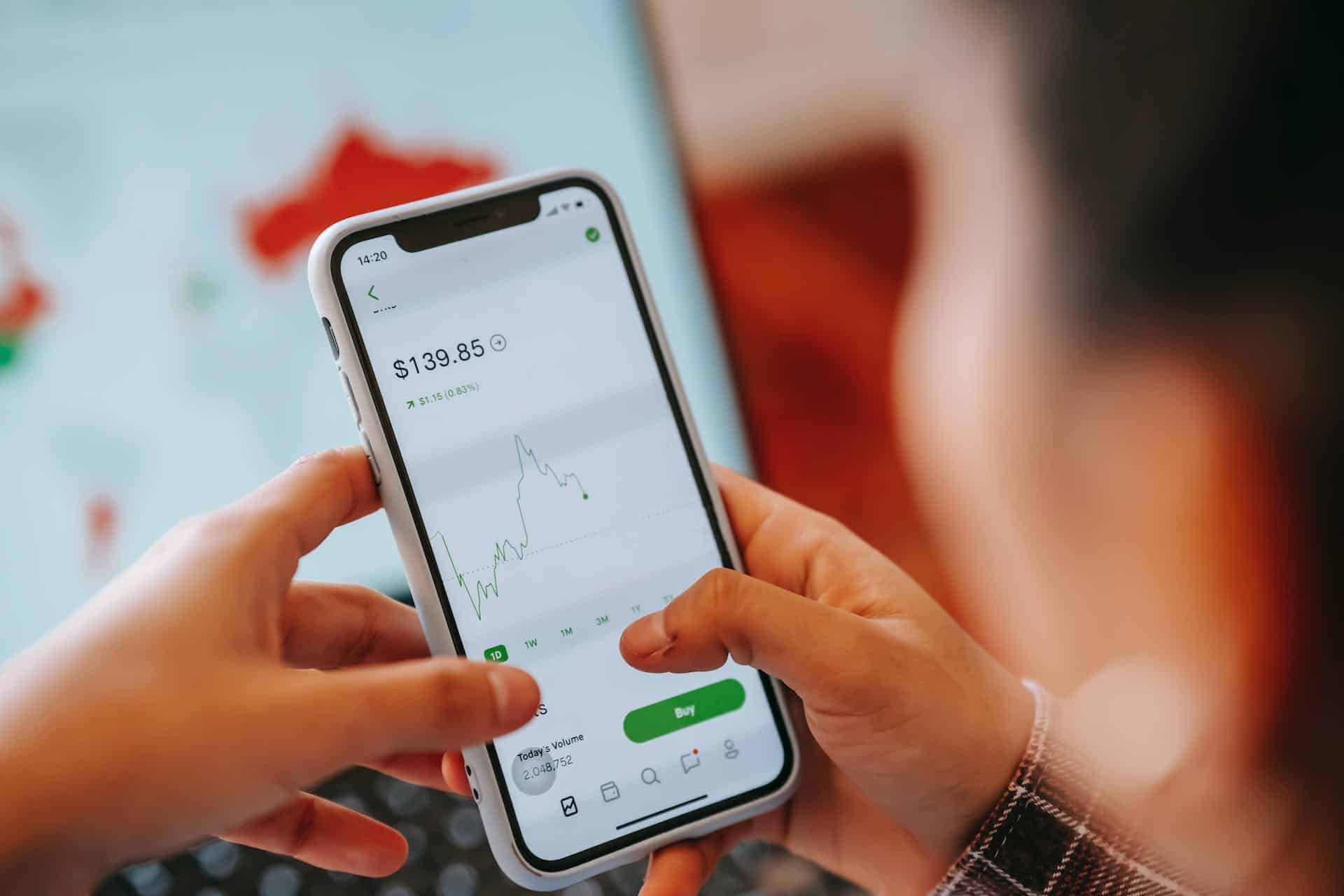Investing in stocks can be both thrilling and challenging. But, before diving into the market, it’s crucial to uncover the truth and see the Andekha Sach about each stock. This includes understanding their performance, challenges, and future potential. Knowing these facts empowers you to make informed decisions, reducing risks and enhancing the likelihood of positive returns. In this pursuit of truth, let us explore the intricacies of two prominent stocks each from the Adani Group, and infrastructure and railways sectors. We will examine their financial health, industry dynamics, and current performance to equip you with the knowledge needed for a successful investment journey.
Adani Enterprises Ltd (ADANIENT)

Adani Enterprises Ltd holds diverse business interests spanning mining, integrated resources management (IRM), infrastructure (airports, roads, rail/metro, water, data centers), solar manufacturing, agro, and defense. Established in 1993, it stands as the flagship company of the Adani Group with an m-cap of close to ₹ 3.5 Lakh Crores and serves as the incubator for other ventures. AEL played a pivotal role in nurturing and launching various listed companies, including Adani Power Ltd., Adani Transmission Ltd., Adani Ports and Special Economic Zone Ltd., Adani Gas Ltd., Adani Green Energy Ltd., and Adani Wilmar Ltd., which have now evolved into independent entities.
Price (as of 11-Jan-24):
BSE: ₹ 3,080.45, NSE: ₹ 3,080.90
To see the latest price of the stock, click here.
Samco Stock Rating:
0.5 stars – Extremely poor business but fair market price.
The stock rating is subject to change based on various factors.
Andekha Sach / Unseen Insights:
Adani Enterprises Ltd closed at ₹ 3,080.90, showing a slight decline of -0.56% on the NSE, while on the BSE, it settled at ₹ 3,080.45, marking a decrease of -0.60%. The combined volume of shares traded on both NSE and BSE stood at 2,179,136, with a total turnover of ₹ 673.18 crores.
In the past 52 weeks, Adani Enterprises Ltd reached its highest point at ₹ 3,129 on 11-01-2024 and its lowest at ₹ 2,952.95 on 08-01-2024. Notably, the stock has experienced an 8% increase in the last month but has witnessed a decrease of -15.29% over the past year. You can check out the comprehensive stock price history here.
Pros:
- Efficient Cash Conversion from Profits: The company excels in converting a substantial portion of its operating earnings, achieving an impressive cash conversion ratio of 182.54%. This indicates a strong working capital cycle, generating substantial cash flows that can be utilized for either supporting growth or distributing dividends. This is poised to enhance returns for shareholders.
- Stable Shareholder Base: The company boasts a robust, long-term shareholder base, minimizing speculation and volatility in its stock. This stability is particularly beneficial for long-term equity investors.
Cons:
- Suboptimal Return on Equity (RoE): The company faces a lower sustainable RoE compared to the expected cost of capital, indicating a struggle to generate superior returns on capital. This might lead to a gradual erosion of value over time.
- Underwhelming Return on Capital Employed (RoCE): Insufficient return on capital employed hampers the company’s ability to deliver high returns to shareholders after factoring in taxes, interest, and other non-equity stakeholders.
- Concerning Interest Coverage: With a meager interest coverage ratio of 2.22 times, a substantial portion of operating profits is allocated to servicing debt. This leaves diminished earnings and cash flows for equity shareholders, negatively affecting returns.
- Highly Cyclical Industry: The company operates in an exceedingly cyclical business, characterized by unpredictable earnings and cash flows. This volatility is expected to translate into high stock price volatility and returns, potentially impacting shareholder returns negatively.
- Limited Pricing Power & Intense Competition: The business struggles with low pricing power and is susceptible to competitive pressures, posing a significant threat to shareholder returns.
- Capital-Intensive Operations: Operating in an extremely capital-intensive sector, the company exhibits a low asset turnover ratio of 1.18. This negatively impacts RoE and diminishes shareholder returns. Additionally, the capital-intensive nature of the business necessitates funding growth through increased borrowings or equity dilution, both negatively affecting shareholder value.
- Below-Average Growth Rate: The company is projected to experience slow growth, limiting wealth creation prospects for shareholders.
- Highly Speculative Stock: The company’s stock carries a high degree of speculation, posing potential risks for long-term shareholders.
- Limited Margin of Safety: Investing in the company offers a low relative margin of safety, particularly after a recent sharp increase in stock prices. This raises concerns about the potential risks for investors.
Adani Green Energy Ltd (ADANIGREEN)
Established in 2015, Adani Green Energy Limited (AGEL) has the 2nd largest m-cap (approx. ₹ 2.7 Lakh Crores) in the Adani Group of companies – a diverse industrial conglomerate in India. It operates as a holding company overseeing various subsidiaries engaged in renewable power generation and related activities within the Adani Group. The company develops, owns, and operates various solar, wind, and hybrid renewable power plants.
Price (as of 11-Jan-24):
BSE: ₹ 1,714.70, NSE: ₹ 1,714.15
To see the latest price of the stock, click here.
Samco Stock Rating:
0.5 stars – Extremely poor business but the fair market price
The stock rating is subject to change based on various factors.
Andekha Sach:
The most recent trading session saw Adani Green Energy Ltd’s share price at ₹ 1,714.15, marking a -0.53% decrease on the NSE, while its last traded stock price on the BSE was ₹ 1,714.70, reflecting a -0.48% dip. The total volume of shares traded on both NSE and BSE amounted to 1,048,396 shares, with a combined turnover of ₹ 181.42 crores.
Adani Green Energy Ltd experienced a 52-week high of ₹ 1,762.05 on 11-01-2024 and a 52-week low of ₹ 1,665 on 08-01-2024. Notably, the stock price has surged by 18% in the last month but has seen a decrease of -8.97% over the past year. For a comprehensive stock price history, click on the link above.
Pros:
- Effective Cash Conversion from Profits: The company boasts an impressive cash conversion ratio, translating 128.88% of its operating earnings into operating cash flow. This signifies a robust working capital cycle, generating substantial cash flows suitable for funding growth initiatives or distributing dividends. This positive dynamic is poised to potentially enhance shareholder returns significantly.
Cons:
- Low Sustainable RoE: The company struggles with maintaining a sustainable return on equity (RoE) lower than the expected cost of capital. This predicament suggests a gradual erosion of value over time, reflecting the company’s challenge in generating superior returns on capital.
- Low Return on Capital Employed: Insufficient returns on capital employed hinder the company’s ability to deliver high returns to shareholders, factoring in taxes, interest, and other non-equity stakeholders. This limitation restrains the company from maximizing shareholder returns.
- Low-Interest Coverage: With a low-interest coverage ratio of 1.71 times, a significant portion of operating profits goes towards servicing debt, leaving diminished earnings and cash flows for equity shareholders. This scenario can adversely impact returns.
- Highly Cyclical Industry: Operating in an extremely cyclical industry, the company contends with unpredictable earnings and cash flows. The resulting high stock price volatility negatively affects shareholder returns.
- Capital Intensive Business: An extremely capital-intensive business, indicated by a low asset turnover ratio of 0.16, hampers RoE and diminishes shareholder returns. Financing growth either through increased borrowings or dilution of shareholders negatively impacts overall shareholder value.
- High Debt: A notably high debt-to-equity ratio of 7.23 exposes equity shareholders to elevated risk, particularly in the face of adverse interest rate cycles or economic downturns.
- Negative Margin of Safety: The recent sharp increase in stock prices diminishes the relative margin of safety for potential investors, emphasizing the importance of caution in the current investment landscape.
Reliance Infrastructure Ltd (RELINFRA)
With an m-cap of around ₹ 9,500 Crores, Reliance Infrastructure Ltd. stands as a prominent infrastructure entity, actively involved in the development of infrastructure projects across various sectors. Operating through Special Purpose Vehicles (SPVs), the company makes significant contributions to power, roads, metro rail, airports, and the defense sector. Additionally, it holds a noteworthy position as a leading utility company, encompassing the entire value chain of power businesses, including generation, transmission, distribution, and power trading. In the energy sector, the company is deeply involved in power generation, transmission, distribution, and trading.
Price (as of 11-Jan-24):
BSE: ₹ 239.30, NSE: ₹ 239.90
To see the latest price of the stock, click here.
Samco Stock Rating:
0.5 stars – Extremely poor business but the fair market price
The stock rating is subject to change based on various factors.
Andekha Sach:
The latest trading details for Reliance Infrastructure Ltd reveal positive movement. On the NSE, the last traded share price was ₹ 239.90, marking an increase of 1.03%, while on the BSE, it stood at ₹ 239.30, reflecting a rise of 0.76%. The cumulative trading volume on both exchanges reached 3,645,737 shares, contributing to a combined turnover of ₹ 87.90 crores.
Reliance Infrastructure Ltd experienced a 52-week high of ₹ 248.45 on 09-01-2024 and a low of ₹ 229.3 on 08-01-2024. Notably, the stock has shown an upward trajectory, surging by 14% in the last month and an impressive 79.97% over the past year. To explore the complete stock price history, refer to this link.
Cons:
- Challenges in Sustainable RoE: The company faces challenges in sustaining a return on equity (RoE) that falls below the anticipated cost of capital. This indicates that the fundamental business structure might erode value over time due to its inability to generate superior returns on capital.
- Struggle with Return on Capital Employed: The company grapples with generating adequate returns on capital employed, hampering its capacity to yield high returns for shareholders after accounting for taxes, interest, and other non-equity stakeholders.
- Low-Interest Coverage Ratio: With an interest coverage ratio of 0.56 times, the company grapples with a substantial portion of operating profits being allocated to servicing debt, leaving diminished earnings and cash flows for equity shareholders. This negatively impacts overall returns.
- Cyclicality Woes in the Industry: Operating in an extremely cyclical business, the company faces unpredictable earnings and cash flows, leading to heightened stock price volatility. This volatility can significantly impede shareholder returns.
- Weak Pricing Power and Intense Competition: The business contends with weak pricing power and susceptibility to competitive pressures, posing potential challenges that can significantly affect shareholder returns.
- Capital-Intensive Operations: Operating in an industry with an asset turnover ratio of 1.03, the company faces the challenge of being highly capital-intensive. A low asset turnover ratio adversely affects RoE and diminishes shareholder returns. Furthermore, sustaining business growth might necessitate increased borrowings or shareholder dilution, both of which can negatively impact shareholder value and returns.
- Low Margin of Safety: The company presents a low margin of safety for investors, particularly evident in the recent rapid surge in stock prices. This scenario suggests increased investment risk, warranting careful consideration for potential investors.
Larsen & Toubro Ltd (LT)
Larsen & Toubro Limited (L&T) is the largest company in the Indian infrastructure sector in terms of m-cap. It has a market cap of approx. ₹ 4.82 Lakh Crores. L&T is a renowned multinational conglomerate headquartered in Mumbai, India, with a legacy dating back to 1938. The group operates across diverse sectors, including infrastructure, heavy engineering, power, hydrocarbon, IT services, and financial services. L&T has been a key player in shaping India’s infrastructure and contributing to international projects. The company has a substantial global presence as well and is recognized for its commitment to innovation, sustainability, and corporate social responsibility.
Price (as of 11-Jan-24):
BSE: ₹ 3,505.20, NSE: ₹ 3,504.85
Samco Stock Rating:
0.5 stars – Extremely poor business but fair market price.
The stock rating is subject to change based on various factors.
Andekha Sach:
Larsen & Toubro Ltd recently traded at ₹ 3,504.85 on the NSE, down by 1.15%, and ₹ 3,505.20 on the BSE, down by 1.18%. The combined trading volume on both exchanges was 1,149,699 shares, resulting in a total turnover of ₹ 405.10 crores. Looking at the medium and long-term trends, the company reached a 52-week high of ₹ 3,593.75 on 09-01-2024, with a 52-week low of ₹ 3,490 on 08-01-2024. Over the past month, the stock price has increased by 5%, and over the last year, it has shown significant growth of 66.58%. Check out the complete stock price history using “Andekha Sach” on Samco’s Website
Pros:
- Efficient Cash Conversion: The company excels in converting a substantial portion of its operating earnings, achieving an impressive cash conversion ratio of 75.78%. This efficiency in converting earnings into operating cash flow not only indicates a robust working capital cycle but also results in significant cash inflows, offering ample resources for growth initiatives or dividends. This, in turn, positively influences shareholder returns.
- Promising Growth Outlook: With an anticipated above-average growth rate in earnings over the coming years, the company is poised for substantial value creation for its shareholders. This positive trajectory in earnings growth positions the company as an attractive investment option, fostering increased shareholder wealth.
- Stable Shareholder Base: Benefiting from a stable and long-term shareholder base, the company experiences reduced speculation and volatility in its stock. This stable foundation is particularly advantageous for long-term equity shareholders, providing a secure and predictable investment environment.
Cons:
- Low Sustainable RoE: The company’s sustainable return on equity falls below the expected cost of capital, indicating a potential erosion of value over time. This inability to generate superior returns on capital raises concerns about the company’s long-term profitability.
- Low Return on Capital Employed: Ineffectiveness in generating sufficient returns on capital employed hampers the company’s capacity to deliver high returns to shareholders, factoring in taxes, interest, and other non-equity stakeholders.
- Low-Interest Coverage: With a very low-interest coverage ratio of 2.86 times, a significant portion of operating profits is allocated to interest payments to debtholders. This diminishes earnings and cash flows available for equity shareholders, negatively impacting overall returns.
- Poor Capital Allocation: The company allocates a disproportionately high amount of assets to working capital, cash and cash equivalents, loans, and advances, constituting 73.17% of total assets. This highlights a suboptimal capital allocation strategy by the management, adversely affecting shareholder returns.
- Negative Margin of Safety: The relative margin of safety for investing in the company is low, primarily due to a recent sharp increase in stock prices. This diminished margin of safety raises concerns about the prudence of investing in the current market conditions.
Indian Railway Catering Tourism Corporation Ltd (IRCTC)
Indian Railway Catering Tourism Corporation Ltd (IRCTC) has an m-cap of ₹ 71.35 Thousand Crores, making it the largest company in the railways sector in India. It is a government-owned company that manages the online ticketing, catering, and tourism operations of the Indian Railways. Established in 1999, IRCTC is known for its user-friendly online ticketing platform, providing passengers with the convenience of booking train tickets, checking seat availability, and accessing various travel-related services. In addition to ticketing, IRCTC oversees catering services on trains and at railway stations, offering a diverse menu for passengers. The company has expanded its services to include various tourism packages, further enhancing the travel experience for railway passengers.
Price (as of 11-Jan-24):
BSE: ₹ 940.20, NSE: ₹ 940.30
Samco Stock Rating:
0.5 stars – Extremely poor business but fair market price.
The stock rating is subject to change based on various factors.
Andekha Sach:
The latest traded stock price of Indian Railway Catering Tourism Corporation Ltd on the NSE was ₹ 940.30, showing a decline of -0.15%, while on the BSE, it was ₹ 940.20, marking a decrease of -0.14%. The combined volume of shares traded on both NSE and BSE amounted to 6,012,001 shares, with a total turnover of ₹ 567.59 crores. In the medium and long-term market action, the company reached a 52-week high of ₹ 951.8 on 11-01-2024 and a 52-week low of ₹ 905.85 on 08-01-2024. Over the past month, the stock price has risen by 23%, and it has increased by 47.66% over the last year. For a comprehensive stock price history, refer to the stock listing on Samco.
Bharat Earth Movers Limited (BEML)
Bharat Earth Movers Limited (BEML) is a leading public sector company in India that operates in the manufacturing and selling of earthmoving equipment and other heavy machinery. Established in 1964, BEML has played a pivotal role in supporting infrastructure development projects across the country, particularly in the railways sector. The company specializes in producing a diverse range of products, including bulldozers, excavators, wheel loaders, and rail coaches. BEML’s commitment to quality and innovation has positioned it as a key player in the construction and mining equipment industry, contributing significantly to India’s economic growth.
Price (as of 11-Jan-24):
BSE: ₹ 3,149.95, NSE: ₹ ₹ 3,148.05
Samco Stock Rating:
0.5 stars – Extremely poor business but fair market price.
The stock rating is subject to change based on various factors.
Andekha Sach:
The recent market activity for BEML Ltd indicates that the last traded share price on the NSE was ₹ 3,148.05, experiencing a slight decline of -0.02%, while on the BSE, it was ₹ 3,149.95, down by -0.06%. The combined volume of shares on both exchanges reached 379,078, with a total turnover of ₹ 120.53 crores. Looking at the medium and long-term trends, BEML Ltd achieved a 52-week high of ₹ 3,316.70 on 08-01-2024 and a 52-week low of ₹ 3,096.45 on 10-01-2024. Notably, the stock price has shown a positive trend, rising by 26% over the last month and an impressive 107.81% over the last year. Investors are encouraged to explore the full stock price history for a comprehensive overview using Samco’s website.
Pros:
- Efficient Cash Conversion: This business excels in converting its operating earnings into cash flow, with an impressive cash conversion ratio of 143.99%. This means it efficiently manages its working capital, ensuring substantial cash flows that can be utilized for growth initiatives or distributed as dividends. Such efficiency is expected to have a positive impact on shareholder returns.
- Lean Business Model: Operating on a lean business model, the company boasts a high Asset turnover ratio of 7.34. This indicates it effectively utilizes its assets to generate revenue. A robust asset turnover is a key contributor to Return on Equity (RoE) and can enhance shareholder returns. Additionally, a higher asset turnover ratio minimizes the need for substantial equity dilution as the business expands its revenues and earnings.
- Stable Shareholder Base: The company enjoys a stable, long-term shareholder base, fostering reduced speculation and volatility in its stock. This stability is advantageous for shareholders with a long-term perspective, contributing to a more secure investment environment.
Cons:
- Low Sustainable RoE: The company faces a challenge in sustaining its return on equity (RoE), which falls below the expected cost of capital. This suggests that the business might erode value over time due to its inability to generate superior returns on capital.
- Low Return on Capital Employed: The inability to generate sufficient returns on capital employed hampers the company’s capacity to deliver high returns for shareholders after factoring in taxes, interest, and other non-equity stakeholders.
- Low-Interest Coverage: A notably low-interest coverage ratio of 7.53 times implies that a significant portion of operating profits goes towards servicing debt. This reduces earnings and cash flows available for equity shareholders, adversely affecting returns.
- Highly Cyclical Industry: Operating in an extremely cyclical industry with unpredictable earnings and cash flows exposes the company to high stock price volatility and returns, negatively impacting shareholder returns.
- Low Pricing Power & High Competition: The business grapples with low pricing power and intense competition, posing a substantial threat to shareholder returns as the company struggles to maintain profitability in a competitive market.
- Poor Capital Allocation: A disproportionately high allocation of assets in working capital, cash equivalents, loans, and advances (89.10% of total assets) reflects a suboptimal capital allocation strategy, negatively affecting shareholder returns.
- Poor Working Capital Cycle: The company faces challenges with a poor working capital cycle of 304 days, necessitating substantial investments. This diminishes free cash flow generation, impacting shareholder value and returns.
- Extremely Speculative Stock: The speculative nature of the company’s stock adds an element of risk, potentially impacting long-term shareholders negatively.
- Negative Margin of Safety: A recent sharp increase in stock prices diminishes the relative margin of safety for investors, posing challenges for those seeking a cushion against potential downturns.
Disclaimer:
This content is for educational purposes only and should not be taken as financial advice, stock recommendations, or an endorsement of any specific investment strategy. Investing involves risks, and individuals should conduct thorough research or consult with financial professionals before making investment decisions. All data reflected is as of 11-Jan-24.





